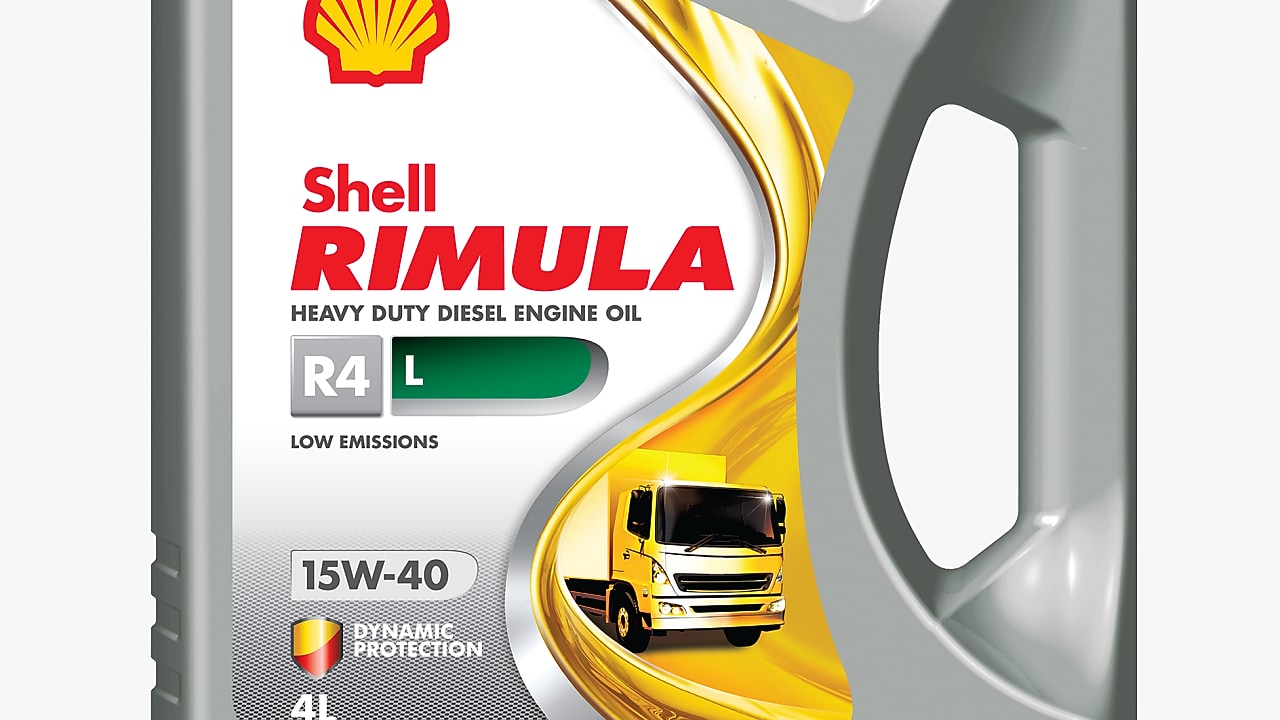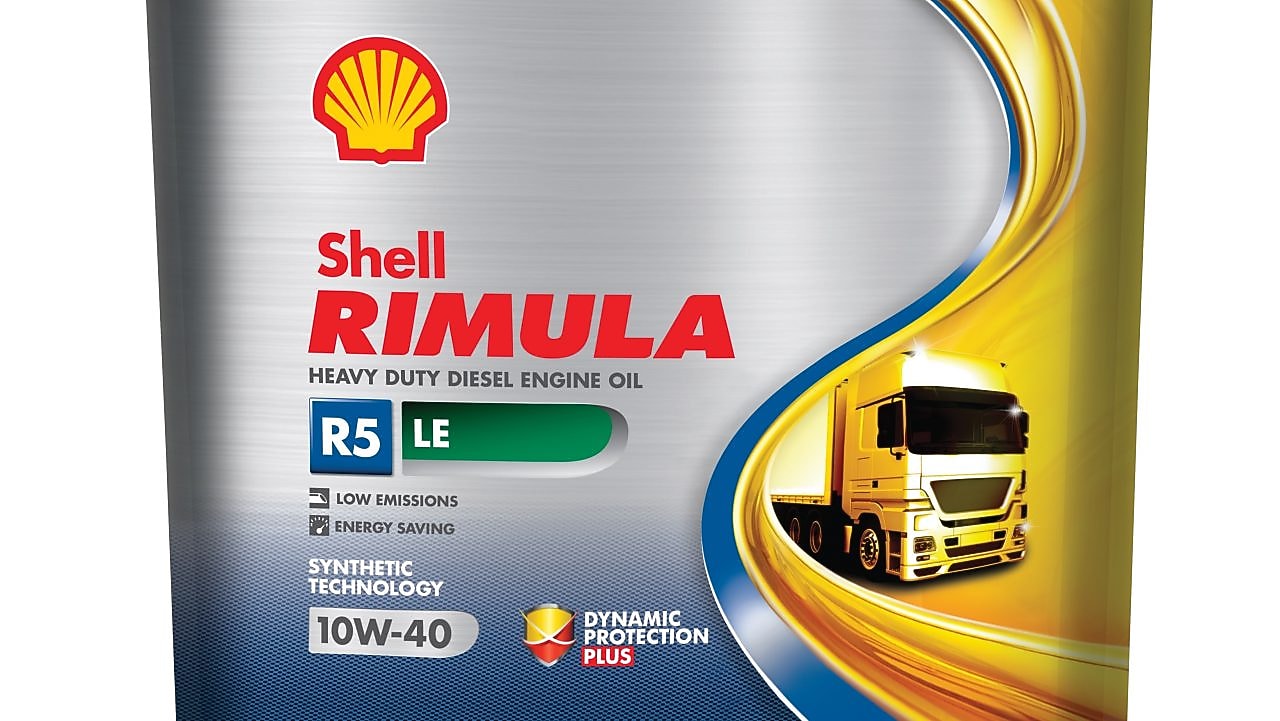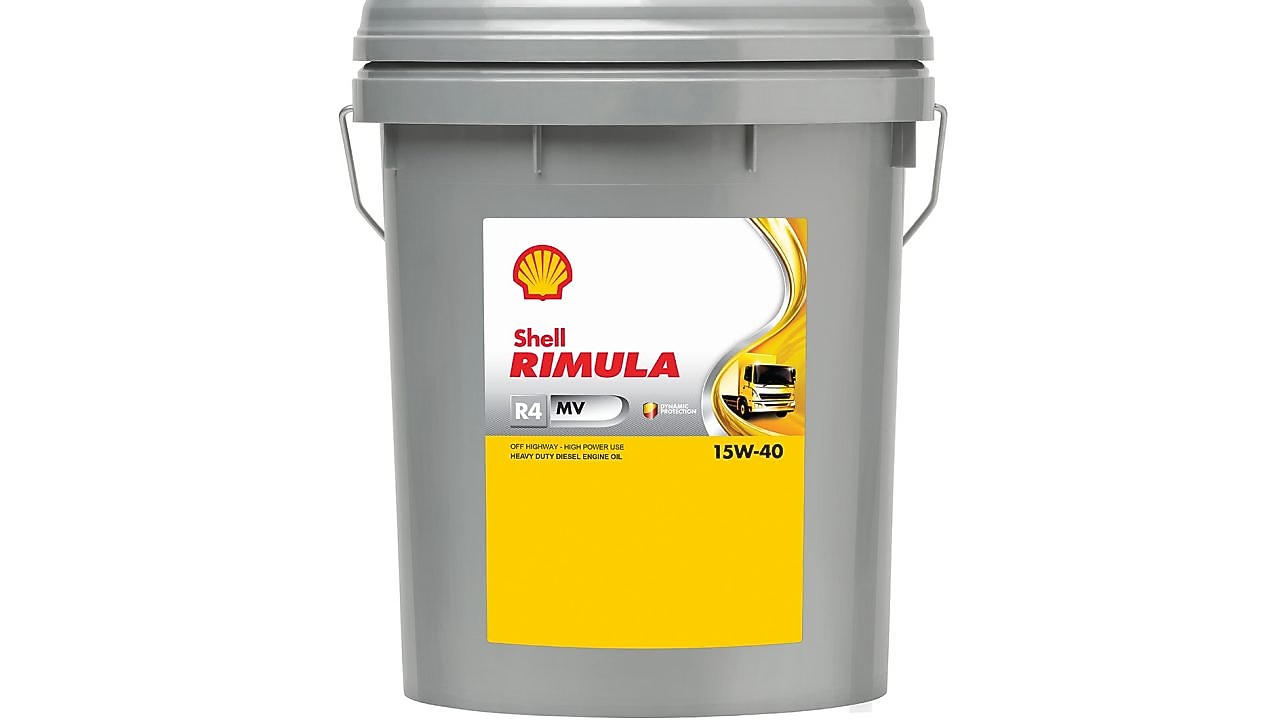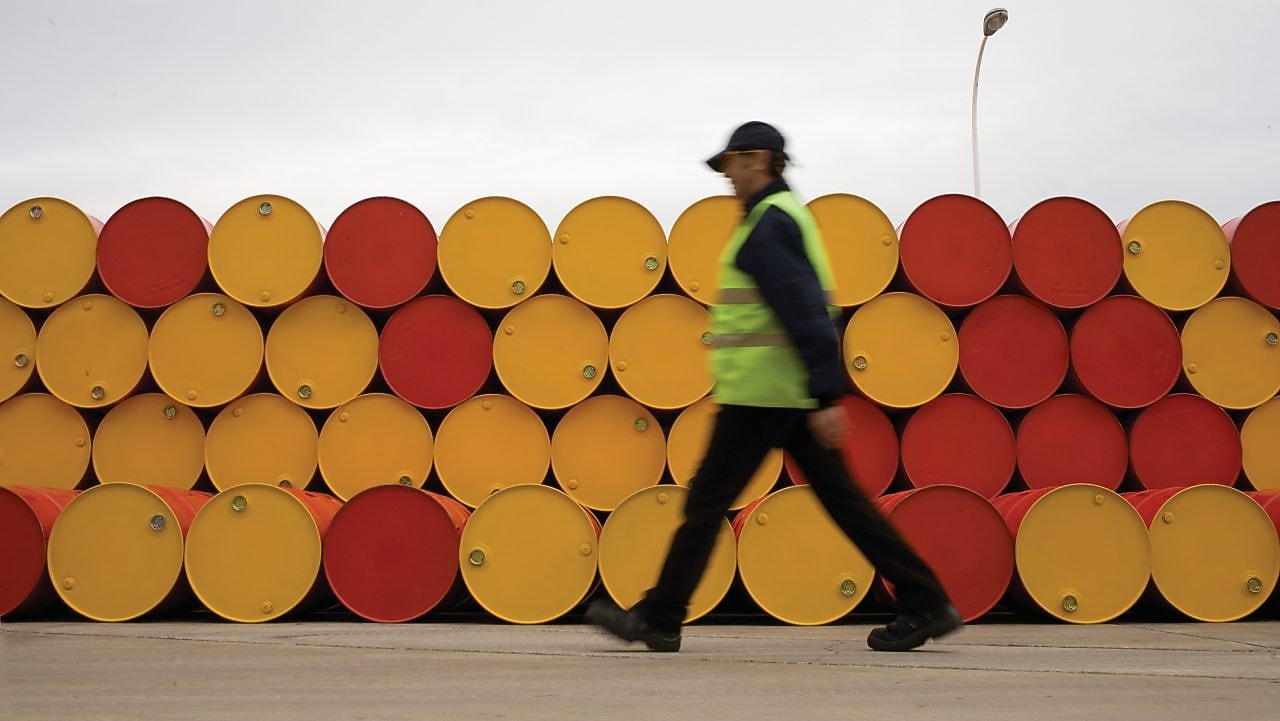
Shell Rimula CK-4 new engine oils
Changes to fuel economy and industry standard norms are driving change in engine components and sizes. The result is often hotter operating temperatures for engine oils. That’s why we’ve developed the new CK-4 category oils.
New shell rimula ck-4 and fa-4 engine oils explained
New Oils Explained
Read the transcript
Read the transcript
Title: Shell Lubricants CK4 and FA4 video wo subtitles
Duration: 2:56 minutes
Description:
Background to the new API CK4 and FA4 specifications
Shell Lubricants CK4 and FA4 video transcript
[Background music plays]
Mellow music
[Video footage]
Blocks fall from above, building a wall, filling the screen
Shell pecten appears in the middle
Icons of engine, fuel nozzle and factory appear on blocks
[Dialogue]
Changes in engine technology, the need to improve fuel economy and more stringent greenhouse gas standards mean it’s time to formulate new heavy duty engine oils.
[Text displays]
Engine Technology
Fuel Economy
Greenhouse Gas Standards
[Video footage]
Camera pans across to a block with text CK-4 & FA-4 below a picture of a dumper truck
[Dialogue]
The new specifications set by the API (American Petroleum Institute) are called CK-4 and FA-4.
[Text displays]
CK-4 & FA-4
[Video footage]
The centre block revolves in three dimensions and a table of years appears:
2006 to 2017
[Dialogue]
It’s been about a decade since the last API diesel engine oil specification was released.
[Text displays]
A table of years appears 2006 – 2017 and fuel drop icon in year 2006
[Dialogue]
Modern diesel engines are running at hotter temperatures and higher pressures.
They are also using newer metal technologies...
[Text displays]
Hotter Temperatures
Higher Pressures
Newer Metal Technologies
[Video footage]
The centre block revolves in three dimensions to show icons:
Beaker, fuel nozzle, leaf
[Dialogue]
…all in an effort to be more fuel efficient.
[Video footage]
Another block revolves to show text:
Added performance demands call for higher performing oil
[Dialogue]
The added performance demands placed on the engine call for higher performing oil.
[Text displays]
Added performance demands call for higher performing oil
[Video footage]
Camera pans across blocks to show an outline of packshots on blocks below
[Dialogue]
In 2017 and beyond, heavy duty vehicle owners will benefit from one of two new categories of engine oil, they are called CK-4 and FA-4
[Text displays]
Upper packshot shows text:
CK-4
Lower packshot shows text:
FA-4
[Video footage]
CK-4 packshot moves to show it is featured/highlighted
[Dialogue]
CK-4 oils will provide improved performance versus today’s oils and can be used in both new and existing engines.
[Text displays]
Improved performance
Can be used in new and existing engines
[Video footage]
FA-4 packshot moves to show it is featured/highlighted
[Dialogue]
While FA-4 approved oils will deliver greater fuel economy benefits for future engines
[Text displays]
Greater fuel economy for 2017 engines
[Video footage]
Camera pans to blocks interspersed with images of truck, rust, clean pistons, and beaker Blocks revolve to show text
[Dialogue]
These oils are being designed with tougher standards in three areas
[Text displays]
High temperature oxidation stability
Shear stability requirements
Improved aeration control
[Dialogue]
High temperature oxidation stability, more stringent shear stability requirements and improved aeration control.
[Video footage]
Camera leaves blocks and pans to show scientists in a laboratory (stills)
[Dialogue]
To find out how the new oils perform, two new industry tests have been created and the limits for the shear stability test have been made more stringent.
[Video footage]
Images of an engineer/s in workshops fade and zoom into view
[Dialogue]
These tests are designed to ensure the new oils will protect…
[Video footage]
A new engine image fades and zooms into view
[Dialogue]
…engine parts that operate under the rigours of advanced engine technologies
[Video footage]
?piston/filter images fade and zoom into view
[Dialogue]
At Shell we are leading the industry with innovative technology that addresses the challenge.
[Video footage]
Engineers examining filter? image fades and zooms into view
[Dialogue]
Not only do we conduct our own extensive lab and bench testing…
[Video footage]
Engineer with engine footage
[Dialogue]
…but we emphasise field trials to prove our oil will perform best…
[Video footage]
(footage)
Fleet of trucks – camera panning around.
[Dialogue]
…where it counts, on the road.
[Video footage]
(footage)
Fleet of trucks travelling on road
[Dialogue]
We’ve tested low viscosity, CK-4 category oils extensively.
[Video footage]
Cartoon animation of vehicles on road
[Dialogue]
From these field trials we’ve accumulated more than 64 million real-world kilometres, in a variety of weather and driving conditions and in many different on and off highway applications.
[Text displays]
We’ve accumulated more than 64 million real-world kilometers
Various weather conditions
On and off highway applications
[Video footage]
Icon of megaphone and image transitions in of welding sparks/light/machinery
[Dialogue]
Shell works very closely with the heavy duty engine manufacturers.
Our technical advisors can help answer questions about OEM approvals…
[Video footage]
Oil pouring from pack, megaphone icon, image of beaker in gloved hand
[Dialogue]
… recommendations and requirements concerning the new categories, viscosities and backward compatibility.
[Video footage]
Icon of trophy and engine image transitions in
[Dialogue]
Because of our leadership in the API and our strong relationships with OEMs…
[Video footage]
Disc rotates180 degrees to display Shell Rimula logo and roadmap overlay zooms in
[Dialogue]
…you can count on Shell Rimula to help you navigate through the changes.
[Text displays]
Shell Rimula
Count on Shell to help navigate the changes
[Video footage]
Disc rotates180 degrees to display in centre to display a clock
Road graphic zooms up and disappears
[Dialogue]
Don’t wait until the last minute to learn more about CK-4 and what you can do to be ready.
[Text displays]
What can you do to be ready?
[Video footage]
Web link appears:
WWW.SHELL.COM/RIMULA/CK4
[Dialogue]
Find out more at shell.com/rimula/ck4.
Click on the link to get more information.
[Text displays]
WWW.SHELL.COM/RIMULA/CK4
[Shell Pecten Logo]
[Audio]
Shell jingle

What’s changing?
In order to meet goals for more fuel-efficient engines and fewer emissions, many next-generation engines will run at higher operating temperatures. This will require changes in engine oil composition so they can withstand more heat without sacrificing engine protection.
It will also mean that instead of one category of engine oils, we’ll have two, CK-4 and FA-4. CK-4 engine oils will be a direct replacement for the engine oils you’re using now and they’ll be “backwards compatible” to all current vehicles.
The new FA-4 engine oils will be offered in lower viscosity grades and are designed primarily for next-generation engines to help maximize fuel economy without sacrificing engine protection. These FA-4 oils may have limited backwards compatibility and would be labelled as such. Oil companies and OEMs are currently testing these products in a range of applications to demonstrate backwards compatibility of FA-4 engine oils without sacrificing engine protection.
Major differences

As CK-4 engine oils get closer to arriving you may hear the term High Temperature High Shear (HTHS) viscosity. CK-4 oils are being referred to in the industry as “High HTHS” engine oils. FA- 4 oils are being referred to as “Low HTHS” oils. These Low HTHS FA-4 oils are being designed to provide fuel economy above and beyond current CJ-4 and CK-4 oils through the use of thinner viscosity fluids.
Why do we need a new oil standard?
Oil technology and engine technology go hand in hand. Changing regulatory limits challenge engine manufacturers to reduce emissions. As engine manufacturers begin to create a new generation of cleaner, more fuel-efficient diesel engines, they need a new generation of higher-performing diesel engine oils to protect them. And they need to know those oils will be available throughout the country to every diesel engine owner.

For more information

Going the distance
64 million km and counting
It is not enough to evaluate prototype oils in the laboratory: the real test is how they work in on- and off-road vehicles in the real world. Field trials are an integral part of the Shell engine oil technology development process. They are extensive programmes run in collaboration with customers and require scientific rigour, experience and expertise.
Shell performs millions of kilometres of real-world testing with customers. Between 2006 and 2015, Shell provided more than 270,000 litres of lubricants for use in customer field tests. A special focus has been placed on a subset of more than 50 engines, which have been thoroughly inspected. These engines received additional attention and were part of a teardown programme to inspect parts following significant distance accumulation.



